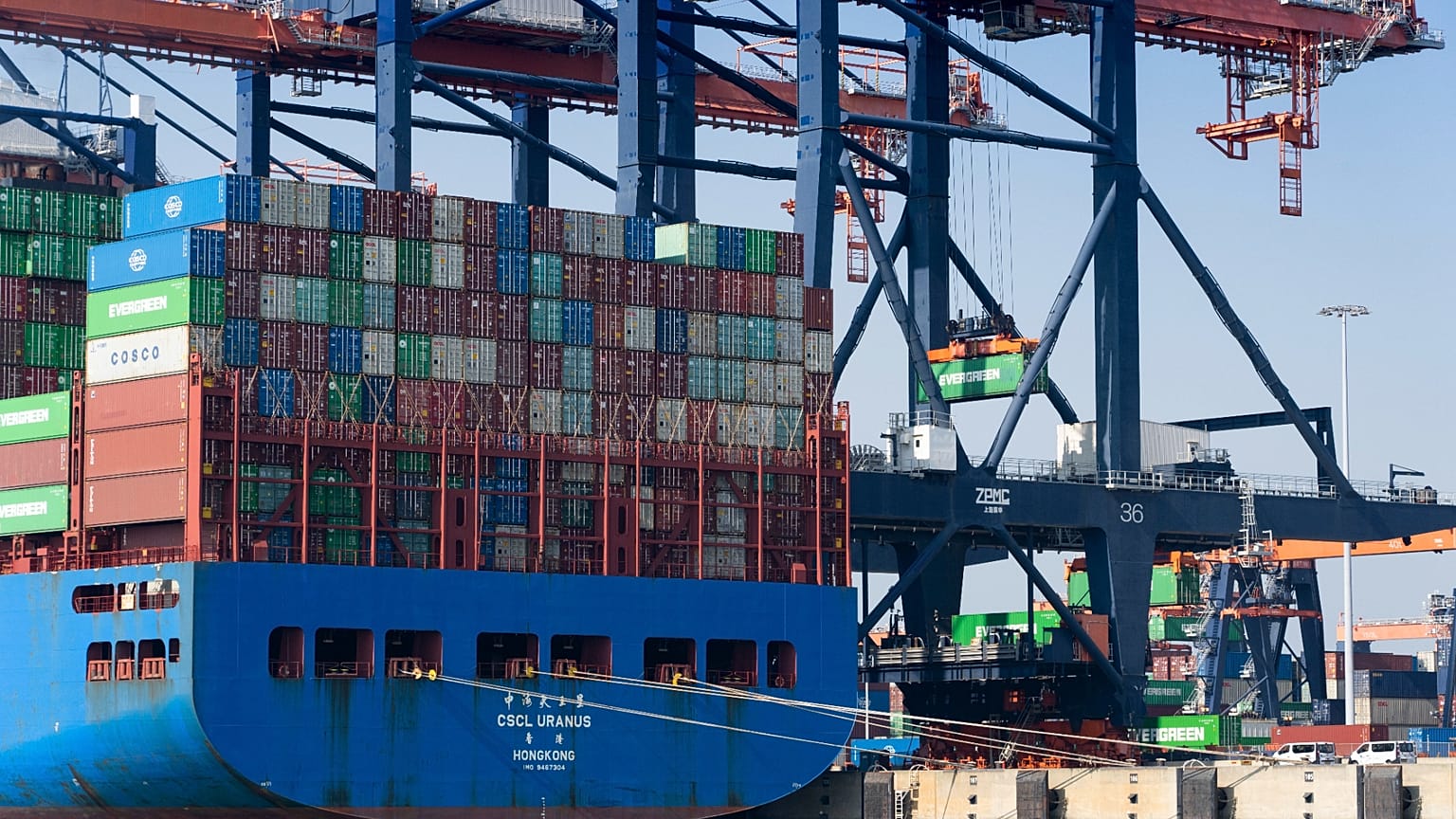Politics
EU Aims to Eliminate Trade Barriers with Mediterranean Nations

The European Union is set to propose a significant shift in its trade relations with Mediterranean countries, aiming to abolish trade barriers and foster deeper economic integration. This initiative, part of the upcoming Pact for the Mediterranean, comes at a time when the EU seeks to diversify its trade partnerships away from traditional allies such as the United States and China.
Strategic Trade Deal on the Horizon
According to a document obtained by Euronews from the European Commission, several EU member states are advocating for the removal of trade barriers with selected North African and Middle Eastern countries. The proposal suggests these nations align with EU single market rules. This ambitious plan is expected to be outlined in a summary prepared ahead of the expected presentation of the Pact in mid-October 2023.
The Pact aims to create new bilateral agreements alongside existing ones with countries including Algeria, Egypt, Israel, Jordan, Lebanon, Libya, Morocco, Palestine, Tunisia, and Syria. European Commission President Ursula von der Leyen has emphasized the need for diversifying trade relationships since the onset of her second term.
Aiming for Enhanced Economic Cooperation
The document outlines a vision where consultations will incorporate perspectives from regional neighbours, particularly the Gulf countries and Türkiye. This recognition of their strategic interests highlights the EU’s aim to strengthen ties across the Mediterranean region.
Many EU member states have expressed a desire to modernize existing agreements, advocating for the elimination of trade barriers. The focus includes aligning regulations across sectors such as digital trade, energy, environmental standards, and labor regulations. The document refers to a historical context, noting that this is not the first attempt at fostering trade integration among Mediterranean nations. The Barcelona Declaration of 1995 aimed to establish a Euro-Mediterranean Free Trade Area, which has not been realized.
The EU currently operates under the Pan-Euro-Mediterranean Preferential Rule of Origin, known as the PEM Convention, which harmonizes trade rules among EU countries and several Mediterranean partners. The document suggests that member states are now pushing for a more comprehensive trade framework that enhances market access and lowers tariffs.
Some states advocate for the modernization of the PEM Convention to better reflect current EU trade agreements. The emphasis on inclusive trade and practical market access tools like the Global Gateway indicates a commitment to fostering cooperation and economic development across the Mediterranean.
In addition to regulatory alignment, partner countries have expressed interest in attracting investment and building joint value chains. Key proposals involve cross-border agro-industrial value chains, customs modernization, and the simplification of trade procedures to support small and medium-sized enterprises (SMEs) and green industries. Addressing non-tariff barriers through structured dialogues is also part of the initiative.
The desire for alignment with the EU’s digital governance and customs systems is evident, with partner countries prioritizing the simplification of border procedures. Proposals include the adoption of General Data Protection Regulation (GDPR)-inspired laws and e-government tools to facilitate convergence.
In summary, the EU’s initiative to eliminate trade barriers with Mediterranean partners reflects a strategic pivot towards enhancing economic ties amid global trade uncertainties. The forthcoming Pact for the Mediterranean aims to create a robust framework for collaboration, potentially setting the stage for a new era of trade relations in the region.
-

 Entertainment2 months ago
Entertainment2 months agoIconic 90s TV Show House Hits Market for £1.1 Million
-

 Lifestyle4 months ago
Lifestyle4 months agoMilk Bank Urges Mothers to Donate for Premature Babies’ Health
-

 Sports3 months ago
Sports3 months agoAlessia Russo Signs Long-Term Deal with Arsenal Ahead of WSL Season
-

 Lifestyle4 months ago
Lifestyle4 months agoShoppers Flock to Discounted Neck Pillow on Amazon for Travel Comfort
-

 Politics4 months ago
Politics4 months agoMuseums Body Critiques EHRC Proposals on Gender Facilities
-

 Business4 months ago
Business4 months agoTrump Visits Europe: Business, Politics, or Leisure?
-

 Lifestyle4 months ago
Lifestyle4 months agoJapanese Teen Sorato Shimizu Breaks U18 100m Record in 10 Seconds
-

 Politics4 months ago
Politics4 months agoCouple Shares Inspiring Love Story Defying Height Stereotypes
-

 World4 months ago
World4 months agoAnglian Water Raises Concerns Over Proposed AI Data Centre
-

 Sports4 months ago
Sports4 months agoBournemouth Dominates Everton with 3-0 Victory in Premier League Summer Series
-

 World4 months ago
World4 months agoWreckage of Missing Russian Passenger Plane Discovered in Flames
-

 Lifestyle4 months ago
Lifestyle4 months agoShoppers Rave About Roman’s £42 Midi Dress, Calling It ‘Elegant’









